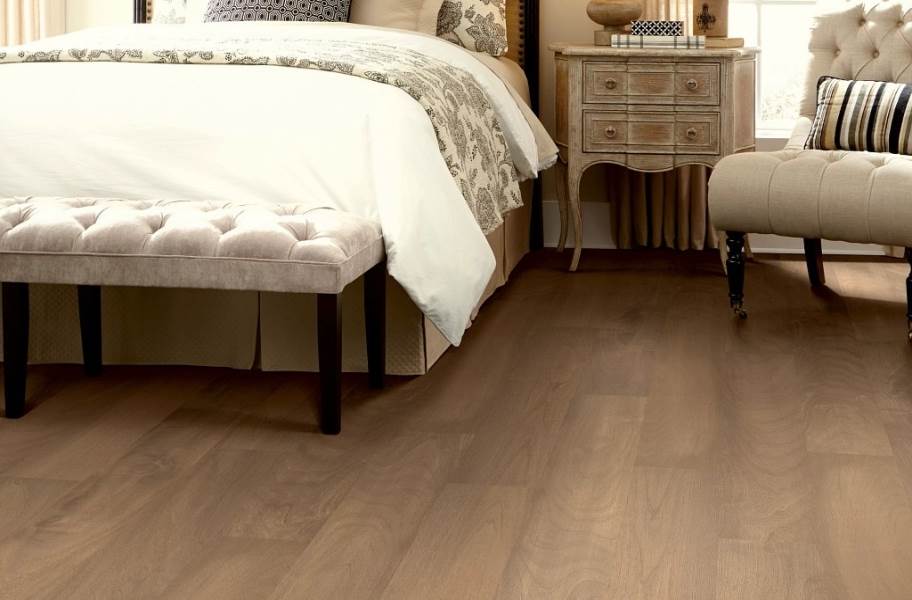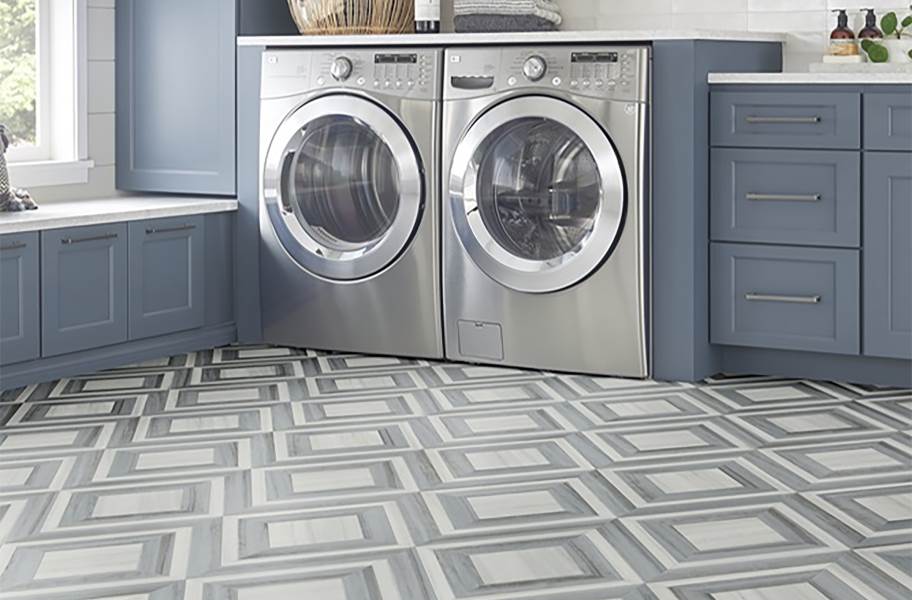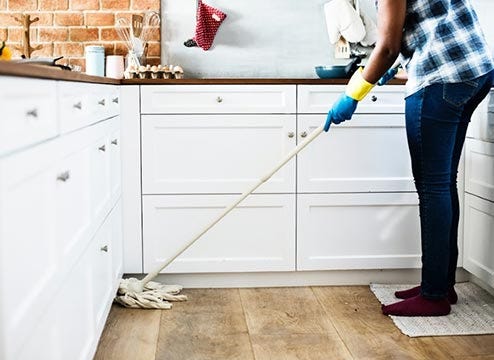
Choosing the right flooring can make or break the look and feel of your home. Two of the most popular options—hardwood and vinyl planks—each bring something unique to the table. But how do you know which one is best for your space? Let’s break down the benefits, drawbacks, and key considerations to help you decide which flooring is the perfect fit for you.
Hardwood Flooring
Hardwood flooring is made from real wood cut from trees like oak, maple, and walnut.1 Each plank is a slice of nature, bringing warmth and character to any room. The beauty of hardwood lies in its natural grain patterns and timeless elegance.
Key Benefits of Hardwood Flooring
- Durability and Longevity: Solid hardwood flooring is known for its strength. With proper care, it can last for decades—sometimes even centuries.
- Aesthetic Appeal: Natural wood flooring is beautiful. Its rich textures and variety of wood species can complement almost any design style.
- Adds Value to Your Home: Homes with hardwood floors often see an increase in market value, making this a smart investment.
Drawbacks of Hardwood Flooring
- Higher Cost: Compared to alternatives like vinyl plank flooring, hardwood comes with a higher price tag, especially when considering installation costs.
Susceptibility to Moisture and Scratches: While hardwood is durable, it doesn’t fare well in damp environments like bathrooms or basements.
Maintenance: To keep it looking pristine, hardwood flooring requires refinishing, polishing, and regular upkeep.
Vinyl Plank Flooring


The best vinyl plank flooring is a synthetic material designed to mimic the look of natural wood. It comes in a variety of styles, including luxury vinyl plank (LVP) and rigid core vinyl, such as TritonCore Pro Planks. These planks are engineered to be durable, water-resistant, and budget-friendly.
Key Benefits of Vinyl Plank Flooring
- Affordability: One of the biggest draws of vinyl planks is their cost-effectiveness. They offer a similar aesthetic to hardwood at a fraction of the price.
- Water-Resistant: Luxury vinyl plank flooring is designed to resist water damage, making it perfect for areas prone to moisture, such as kitchens and bathrooms.
- Low Maintenance: Vinyl planks are incredibly DIY-friendly, requiring just a sweep and occasional mop to stay clean.
Drawbacks of Vinyl Plank Flooring
- Limited Lifespan: While durable, vinyl floors don’t last as long as solid hardwood. They may need replacement after a couple of decades, depending on wear and tear.
- Less Eco-Friendly: Made from synthetic materials, vinyl flooring isn’t as sustainable as natural hardwood.
- Resale Value: Vinyl doesn’t add the same level of value to your home as hardwood.
Key Factors to Consider Between Hardwood and Vinyl Planks
When deciding between hardwood and vinyl plank, it’s important to weigh several factors to find the right fit for your lifestyle and budget. Here are some of the differences between hardwood vs. vinyl plank according to different factors:
Budget
Hardwood installation and the material itself are more expensive initially but can be a long-term investment in your home’s value.2 Vinyl planks, especially luxury vinyl flooring, are more affordable upfront and offer an attractive option for those on a tighter budget.
Durability and Maintenance
Natural hardwood flooring can handle heavy foot traffic but requires regular maintenance, such as refinishing to repair scratches. Vinyl plank flooring is incredibly durable and requires minimal upkeep, making it ideal for busy households.
Moisture Resistance
Vinyl plank flooring is the clear winner in moisture-prone areas like kitchens, bathrooms, and basements. Hardwood, on the other hand, should be kept far away from moisture-rich environments to avoid damage.
Aesthetic Preferences
If you love the look of natural wood, hardwood is the way to go. It offers warmth and elegance that is hard to beat. Vinyl planks, however, come in a variety of styles, and modern luxury vinyl tiles can replicate the appearance of wood so closely that it’s often hard to tell the difference.
Environmental Impact
Hardwood is a more sustainable choice if sourced responsibly from managed forests. Vinyl plank flooring is less eco-friendly due to its synthetic nature, though some options are made from recycled materials.
Which Flooring Is Best for Your Home?
At the end of the day, the right flooring for your home depends on your unique needs. If you’re looking for long-term value and love the natural beauty of wood, hardwood floor is a great choice. But if you’re seeking a budget-friendly, water-resistant option for high-moisture areas, a vinyl floor may be your best bet.
Whether you’re ready to invest in real wood or are leaning toward the practicality of vinyl flooring, Flooring Inc. has options to suit every home and budget. For more detailed guides or to explore our wide range of options, including laminate flooring, wood flooring, and more, reach out to our experts today!
Sources
Accuracy is important to us. That’s why all of our content is vetted by flooring experts with more than 13 years of combined experience in the field. We also work to source information directly from flooring manufacturers.
Design Life-Cycle. Straight from the Forest: The Life Cycle of Hardwood Flooring (Raw Materials). https://www.designlife-cycle.com/hardwood-flooring
Bassemeter. Can Hardwood Flooring Increase Home Value?. https://www.bessemeter.com/blog/can-hardwood-flooring-increase-home-value/






